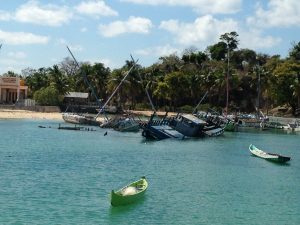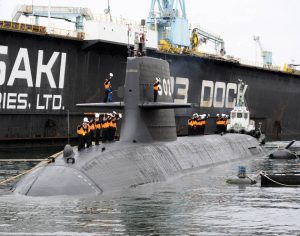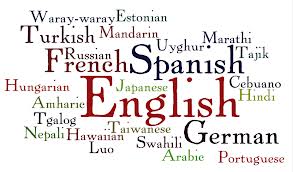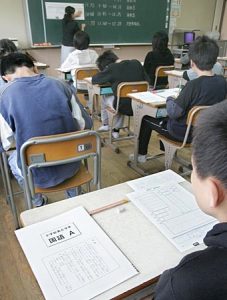A Tough Choice: the Criminalization of Indonesian Fishermen
Memo #387 By: Antje Missbach – antje.missbach [at] monash.edu The tough choice between illegal fishing and transporting asylum seekers Many Indonesian fishermen have suffered the consequences of breaking Australian law in recent years as they have tried to make a meagre living from traditional work. Because fishing in increasingly overfished seas provides inadequate income, many have tried […]
“The Japan Choice:” Will Australia choose Japanese submarines for its future defence force?
Memo #373 By: Thomas Wilkins – thomas.wilkins [at] sydney.edu.au Nothing is exciting strategic commenters in Australia more than the long drawn out process of competitive evaluation of rival boats for its Collins-class submarine replacement programme. The choice of sub represents a roughly A$50bn investment and the future of Australian naval deterrent capacity into the 2050s. […]
What is Language For? “Other” vs. “Heritage” Language Education in Australia
Australia is an ethno-linguistically diverse country with more than 15% of people speaking languages other than English, or a heritage language, at home. While learning English can contribute to immigrant students’ socioeconomic and educational success, heritage language maintenance facilitates maintaining ties with family and community members unable to speak English, avoiding a potential generation gap in immigrant families. Heritage language maintenance refers to a situation where immigrants continue using their languages in a host society. Additionally, maintaining a heritage language and ethnic identity are interconnected; individuals who lost their heritage languages reported feeling as though a part of their identities were missing. Finally, heritage language maintenance promotes multilingualism in society, which facilitates economic, cultural and political communications among countries.
National Testing in Japan and Australia: To Publish or Not to Publish Scores?
Memo #149 – On this April 17, 2012, in Japan, around 30 per cent of years 6 and 9 students have undergone national standardized testing. But Japan isn’t the only country to introduce tests as part of policy efforts to improve student performance. In fact, all advanced countries use tests to assess potential workforce knowledge and skills with an eye towards raising national productivity and surviving global competition. But the exact nature of testing regimes differs per country. For example, Japan and Australia use different mechanisms to direct individual schools towards national goals.
同化と差異化が同時進行する世界の教育政策: 学力テストの日豪比較から
Memo #149 – 今日、全国の小学校と中学校の約30%を対象に全国学力・学習状況調査(以下「学テ」)が実施された。もちろん、こうした全国的な学力テストを導入して学力の向上を図る教育政策は、日本に限ったことではない。グローバル化した「知識経済」において、国の経済的生産性を高め国際的な競争に生き残るには、労働者の知識・技能レベルの底上げが不可欠であり、そのためには全国学力テストを通じて教育の質を向上する必要がある、というのが先進国に共通する政策的見立てである。
Regulating Pacific Seasonal Labour in Australia
Memo #18 – Developed economies throughout the Asia Pacific region are grappling with how to design immigration policies that balance domestic concerns about labour shortages with respect for human rights and the need to maintain good bilateral relations with sending countries. In 2008, the Australian government piloted a scheme for bringing seasonal workers from four Pacific Island countries (Papua New Guinea, Kiribati, Tonga, and Vanuatu) to fill the gaps in Australia’s horticultural industry.




